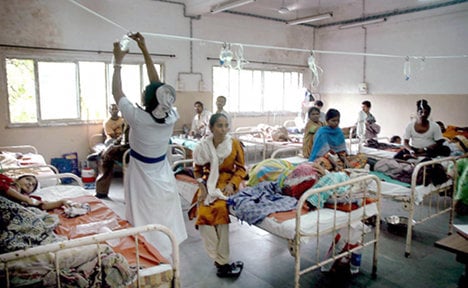India’s Intellectual Property Appellate Board has rejected an appeal by Bayer against the decision by a local patent authority to grant a license to generics manufacturer Natco Pharma, allowing it to copy Nexavar.
The patent authority allowed Natco to make copies of Nexavar on the grounds that Bayer’s drug is too expensive for most people in India.
The license allows Natco to sell generic versions of the drug at a fraction of Bayer’s price.
But Bayer said in a statement that it “strongly disagrees with the conclusions of the Intellectual Property Appellate Board.”
“Bayer is committed to protecting its patents for Nexavar – and will rigorously continue to defend our intellectual property rights within the Indian legal system,” said a company spokesman in an emailed statement.
“We will pursue the case in front of high court in Mumbai with a writ petition.”
The challenges faced by the Indian healthcare system had “little or nothing to do with patents on pharmaceutical products as all products on India’s essential drug list are not patented,” Bayer said.
One of the main barriers to access to medicines in developing countries such as India was the lack of adequate healthcare services and infrastructure ensuring that drugs would effectively bring treatment to those who need it.
“The order of the Intellectual Property Appellate Board weakens the international patent system and endangers pharmaceutical research,” Bayer argued.
The limited period of marketing exclusivity made possible by patents ensures that the costs associated with the research and development of innovative medicines can be recovered, it said.
Bayer said it has a patient access programme in place in India for Nexavar, which “significantly reduces the cost of the monthly treatment.”
AFP/jcw



 Please whitelist us to continue reading.
Please whitelist us to continue reading.
Member comments